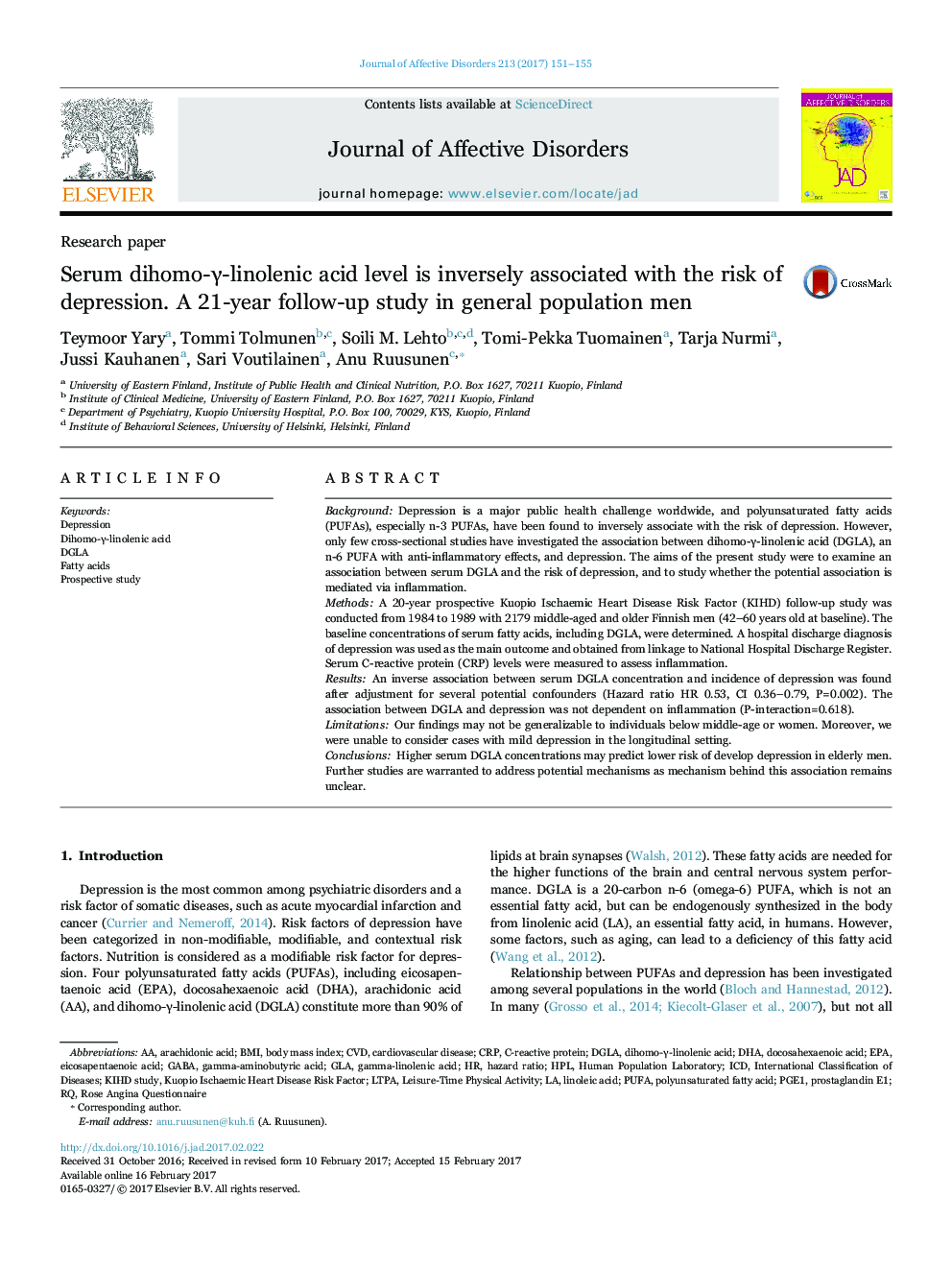| کد مقاله | کد نشریه | سال انتشار | مقاله انگلیسی | نسخه تمام متن |
|---|---|---|---|---|
| 5722239 | 1608112 | 2017 | 5 صفحه PDF | دانلود رایگان |

- Serum dihomo-γ-linolenic acid (DGLA) is an n-6 polyunsaturated fatty acid.
- Prospective association between DGLA and risk of depression is unstudied.
- Serum DGLA levels were inversely associated with risk of depression in elderly men.
- Inflammation did not explain the observed association.
- Potential mechanisms of the association need further investigation.
BackgroundDepression is a major public health challenge worldwide, and polyunsaturated fatty acids (PUFAs), especially n-3 PUFAs, have been found to inversely associate with the risk of depression. However, only few cross-sectional studies have investigated the association between dihomo-γ-linolenic acid (DGLA), an n-6 PUFA with anti-inflammatory effects, and depression. The aims of the present study were to examine an association between serum DGLA and the risk of depression, and to study whether the potential association is mediated via inflammation.MethodsA 20-year prospective Kuopio Ischaemic Heart Disease Risk Factor (KIHD) follow-up study was conducted from 1984 to 1989 with 2179 middle-aged and older Finnish men (42-60 years old at baseline). The baseline concentrations of serum fatty acids, including DGLA, were determined. A hospital discharge diagnosis of depression was used as the main outcome and obtained from linkage to National Hospital Discharge Register. Serum C-reactive protein (CRP) levels were measured to assess inflammation.ResultsAn inverse association between serum DGLA concentration and incidence of depression was found after adjustment for several potential confounders (Hazard ratio HR 0.53, CI 0.36-0.79, P=0.002). The association between DGLA and depression was not dependent on inflammation (P-interaction=0.618).LimitationsOur findings may not be generalizable to individuals below middle-age or women. Moreover, we were unable to consider cases with mild depression in the longitudinal setting.ConclusionsHigher serum DGLA concentrations may predict lower risk of develop depression in elderly men. Further studies are warranted to address potential mechanisms as mechanism behind this association remains unclear.
Journal: Journal of Affective Disorders - Volume 213, 15 April 2017, Pages 151-155